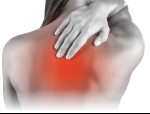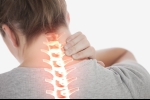Fixing Upper Back and Neck Pain
Overview - Upper back and neck pain can stop you in your tracks, making it difficult to go about your typical day. The reasons behind this discomfort vary, but they all come down to how we hold ourselves while standing, moving, and most important of all sitting. Neck and upper back pain can limit your movements and capabilities. If you don’t do anything about your pains, they can get worse, spread, and limit you further. This is usually because the muscles around your immediate area of pain have tensed up to protect that one spot. That expansion limits movement and can turn one clenched muscle under your shoulder blade into a painful shoulder and a tension headache.
























